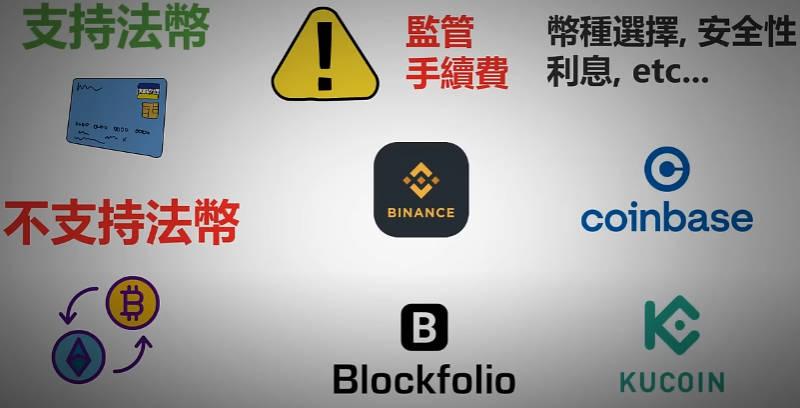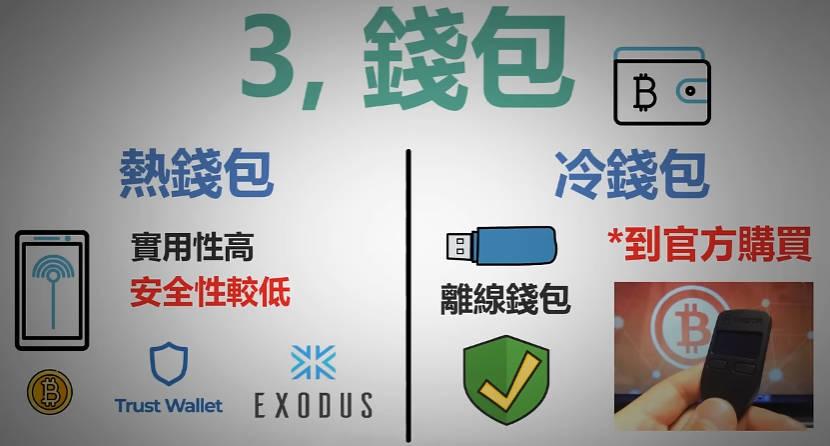Essential Knowledge for Mastering Cryptocurrency and Avoiding Investment Pitfalls
Hello everyone, this is the AiCoin Research Institute.
We often hear that cryptocurrency is the trend of the future, but it is not easy to establish a foothold in this field filled with emerging technologies and risks.
In this article, I will share with you 10 essential cryptocurrency knowledge points to help you avoid detours in your investment journey and reduce unnecessary losses.
Whether you are a beginner in cryptocurrency or an investor who has been navigating the market for some time, the content of this article will provide you with plenty of inspiration and guidance. Let’s delve into these key concepts together, allowing you to walk the investment path with greater confidence.
1. Cryptocurrency Exchanges: The First Step in Cryptocurrency
If you want to invest in the world of cryptocurrency, the first step is to purchase cryptocurrency, which requires going through a cryptocurrency exchange. Exchanges are like a marketplace, providing you with a platform to buy and sell cryptocurrencies. You can use it to exchange fiat currency for virtual currency for investment.
Exchanges are divided into two types: those that support fiat currency exchanges and those that do not. Exchanges that support fiat currency exchanges are more convenient, allowing you to purchase directly with a credit card. Non-fiat exchanges are usually referred to as crypto-to-crypto exchanges, where you can only exchange other cryptocurrencies.
Choosing a good exchange requires considering multiple factors, especially regulation and fees, as they directly affect your trading experience. Additionally, the choice of cryptocurrencies, security, and the platform's interest policies should not be overlooked. Nowadays, there are many well-known exchanges in the market, such as Binance, Coinbase, and FTX, and you can choose the most suitable platform based on your needs.
2. Cryptocurrency Exchange Services: Simple and Direct Trading Options
Another option is cryptocurrency exchange services, which provide buy and sell rates, allowing you to exchange directly through them. Similar to exchanging foreign currency at a bank, exchange services also offer the service of converting fiat currency to virtual currency and vice versa.
The biggest advantage of exchange services is their ease of use and relatively fewer regulatory issues, as they comply with local regulations. However, their selection of cryptocurrencies is usually limited, and they do not have as many additional features as exchanges. For example, Mycoin and Betox are well-known cryptocurrency exchange services in Taiwan, while Luno is a commonly used choice in Malaysia, known for its simplicity and relatively low fees.

3. Cryptocurrency Wallets: Safeguarding Your Assets
If you do not want to store your assets on exchanges or other platforms, it is advisable to store your cryptocurrency in your private wallet. Private wallets provide completely decentralized protection, giving you full control over your assets.
Wallets are divided into two categories: hot wallets and cold wallets. Hot wallets are connected to the internet and are usually operated through mobile or computer apps, making them convenient and easy to use. However, their security is relatively lower, as hackers may steal your assets through online attacks. Common hot wallets include Exodus and Trust Wallet.
Cold wallets, on the other hand, are offline and offer higher security, making them suitable for long-term storage of cryptocurrencies. Cold wallets typically exist in the form of USB devices and only connect to the internet when a transaction is needed, significantly reducing the risk of hacking. Representative cold wallets include Ledger and Trezor. 
4. KYC Verification: A Necessary Line of Defense
Although the core idea of cryptocurrency is decentralization, in reality, many platforms still require KYC (Know Your Customer) verification. This is to prevent money laundering, fraud, and other financial crimes, as well as to comply with government regulations.
KYC verification typically requires you to provide proof of identity and residence. Although this seems to conflict with the idea of decentralization, it helps reduce the risk of fraud. If a platform implements KYC verification, the likelihood of it being shut down or running away with funds is greatly reduced.
5. Stablecoins: The Stable Assistant of Cryptocurrency
In the world of cryptocurrency, stablecoins play an important role that cannot be ignored. Stablecoins are cryptocurrencies pegged to the value of fiat currency, designed to provide a stable means of value storage. The most common stablecoins are USDT (Tether) and USDC, which are usually tied to the value of the US dollar.
With stablecoins, you can avoid the extreme volatility of the market. For example, when the price of Bitcoin drops, you can avoid losses by converting your assets into stablecoins, and then convert them back into Bitcoin for investment when the price is right.
6. Transfers and Withdrawals: Details Determine Success or Failure
Many beginners make mistakes during transfers and withdrawals, especially when selecting the correct receiving address. Each wallet address has its unique format, and different cryptocurrencies use different blockchain networks.
For example, USDT has multiple chain types, the most common being ERC-20, TRC-20, and Omni networks. When transferring, be sure to select the correct chain type; otherwise, your transfer may fail or even result in asset loss.
7. Exchange Rates and Fees: Hidden Costs
When trading cryptocurrencies, do not overlook exchange rates and fees. Many platforms may appear to have low fees on the surface, but in reality, the actual costs may be higher due to exchange rate differences. You can compare the exchange rates of several platforms to choose the most suitable option for you.
8. Whitepapers: Verifying Project Reliability
Before investing in any cryptocurrency, reviewing its whitepaper is an important step in verifying the project's reliability. A whitepaper typically contains the project's background, functions, technical architecture, and team information. Through the whitepaper, you can assess the project's innovation and feasibility.
9. DeFi: The Rise of Decentralized Finance
DeFi (Decentralized Finance) is an emerging field in the cryptocurrency world. It utilizes blockchain technology to provide financial services such as deposits, loans, and investments, with all transactions occurring in a decentralized environment, reducing financial costs and increasing transparency.
Although DeFi offers high returns, it also carries certain risks. Investors need to carefully choose platforms and understand the potential risks of liquidity mining and staking investments.
10. The Future of Cryptocurrency: Stay Alert and Cautious
The cryptocurrency market is full of opportunities and challenges, and investors need to remain vigilant. With the development of technology and the improvement of regulations, the cryptocurrency market will become more mature in the future.
Remember: Investing carries risks, and caution is required when entering the market.
If you have any questions, you can contact us through the following official channels:
AiCoin Official Website: www.aicoin.com
Telegram: t.me/aicoincn
Twitter: x.com/AiCoinzh
Email: support@aicoin.com
Group Chat: Customer Service Yingying, Customer Service KK
免责声明:本文章仅代表作者个人观点,不代表本平台的立场和观点。本文章仅供信息分享,不构成对任何人的任何投资建议。用户与作者之间的任何争议,与本平台无关。如网页中刊载的文章或图片涉及侵权,请提供相关的权利证明和身份证明发送邮件到support@aicoin.com,本平台相关工作人员将会进行核查。




